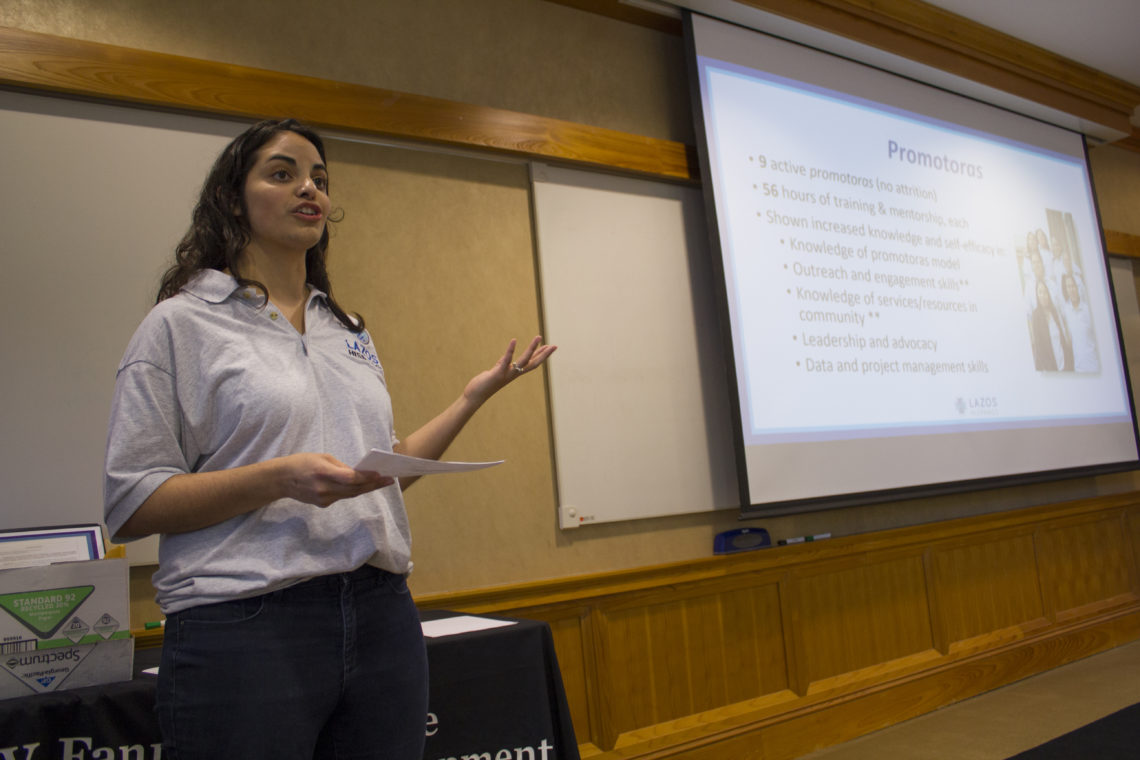Be there. Let the community see you. That’s the key to assessing the needs of vulnerable communities according to a new study from the University of Georgia.
Community needs assessments lay the foundation for improving local health care services, but local leaders may be making decisions based on skewed results if the assessment doesn’t capture a representative sample of the community.
However, reaching vulnerable members of a community with traditional survey methods can be difficult.
This was the reality Alejandra Calva, a dual-degree graduate student at UGA’s College of Public Health and School of Social Work, found herself in when she began conducting a needs assessment for the Latinx community in Athens.
Many people she approached were hesitant to participate in the assessment because they were wary of talking to anyone outside their own community. In short, said Calva, they didn’t trust her.
“I needed to find a way to build that trust,” said Calva. “For me what made the difference was being there, being in the community and really immersing myself in it. Not just going into the community when I needed to get data.”
Calva started eating at Latinx-owned restaurants, shopping at Latinx grocery stores and attending Spanish-language church services.
“It was letting people see my face so that I wasn’t as scary the following week when I asked, ‘Hey can you fill out this survey for me?’” she said.
For Calva, she was doing what she loved, that is, being with the community. In the process, she got enough responses to make the assessment worthwhile. Her approach paralleled the strategies she’d employed in her previous career in public relations. And they worked.
Now, Calva has outlined that approach in a paper appearing in the journal Health Promotion Practice.
Her methods, said co-author Pamela Orpinas, are uncommon in the academic setting.
“She used marketing skills to find people that we generally don’t find,” said Orpinas, a professor of health promotion in the College of Public Health. “Typically, you send some surveys through email or you go house to house. Well, they’re never going to answer if they’re fearful.”
Calva’s approach was based in part on the work of mentor and co-author, Rebecca Matthew.
“Ms. Calva’s research keenly illustrates how we can build trust and create mutually beneficial partnerships in community-engaged research and practice,” said Matthew, an assistant professor in the School of Social Work.
The results of the needs assessment led to the launch of “Lazos Hispanos,” a collaborative academic-community partnership aimed at better integrating the local Latinx community into health care and other social services.
Calva says the lessons she shared in this paper may be especially helpful for researchers who are getting started in community-based research.
“Being there in the community informs how you write your questions,” she said, “and informs where you’re going to be standing the next five weekends to do the surveys.”
The paper, “Overcoming Barriers: Practical Strategies to Assess Latinos Living in Low-Income Communities,” is available in the journal Health Promotion Practice.
– Lauren Baggett
Posted April 2, 2019. A copy of the story is also available at UGA Today.

